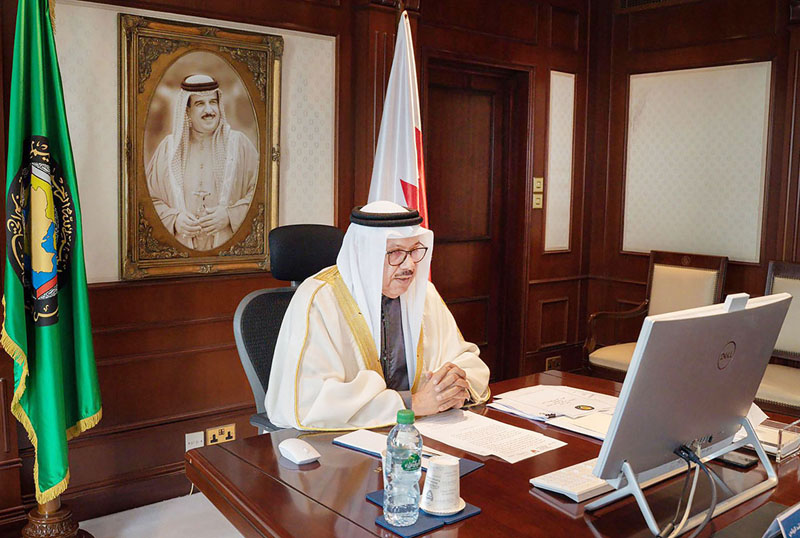
MANAMA: Top Gulf Arab officials held a virtual meeting yesterday to bolster "cooperation" ahead of a summit next month amid efforts to end a rift between a Saudi-led alliance and Qatar. The foreign ministers of Saudi Arabia, the United Arab Emirates, Bahrain, Oman and Kuwait took part in the meeting hosted by Manama, while Qatar was represented by its minister of state for foreign affairs.
The participation of Qatar's foreign minister, Sheikh Mohammed bin Abdulrahman Al-Thani, would have been seen as another sign towards ending the diplomatic dispute. Saudi Arabia led its allies the UAE, Bahrain and Egypt to cut ties with Qatar in June 2017, saying it was too close to Iran and funding radical Islamist movements - charges Doha staunchly denies.
After severing ties, the countries issued a list of 13 demands for Qatar, including that it shut down its broadcaster Al Jazeera. The six countries of the Gulf Cooperation Council (GCC) addressed yesterday "suggestions on supporting and strengthening joint Gulf cooperation in various political, economic and social aspects", according to a statement by Kuwait's foreign ministry.
This comes after Manama on Wednesday called for an "end to regional disputes", softening its rhetoric surrounding the Gulf crisis. Bahrain's Foreign Minister Abdellatif Al-Zayani expressed confidence Sunday "in Saudi Arabia's ability to find a solution to the dispute within the Gulf". Zayani added during the meeting that his country hoped for a return to normalcy in the region, according to Bahraini media.
Earlier this month, Saudi Foreign Minister Prince Faisal bin Farhan said a resolution was in sight, with the four governments behind the blockade "on board" and a final agreement expected soon as the GCC prepares to convene in the kingdom on Jan 5. Egypt and the UAE have since given their public support to the negotiations although diplomatic sources say the UAE has been reluctant to compromise.
Sources privy to the negotiations have said the Saudi-led quartet was willing to compromise on its list of demands, with the upcoming summit providing a path to reconciliation but not a final comprehensive agreement. According to Majed Alraeesi, an Emirati analyst, coining the "coming phase a 'reconciliation' was unrealistic". "It is a phase (to show) credibility and good intentions from point zero with the goal to strengthen dialogue… the current optimism is out of place compared to the reality," he tweeted yesterday. - AFP








